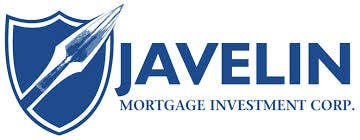Javelin Mortgage Investment Corp (NYSE:JMI) might be a small and young mortgage real estate investment trust (mREIT), but its 17.6% dividend yield is attractive enough to lure investors. However, before being enticed by the elevated dividend yield, I recommend looking at some of the headwinds mentioned in this article that JAVELIN is facing.
It’s in the family
Since Javelin Mortgage Investment Corp (NYSE:JMI) is a relatively new mortgage REIT, I though its description and relations with other mREITs could be of some value to investors. JAVELIN had no operations before June 18, 2012, which means it’s only one year old; it is being managed by the same external manager who manages ARMOUR Residential REIT, Inc. (NYSE:ARR). So, JAVELIN and ARMOUR are sisters since October 2012, when JAVELIN completed its IPO.
While ARMOUR is a pure-play mREIT, Javelin Mortgage Investment Corp (NYSE:JMI) is classified as a hybrid mREIT. JAVELIN has a target to allocated at least 60% of its equity to residential mortgage backed securities for which any of the government Agencies guarantee principal and interest payments (Agency RMBS). Therefore, Agency RMBS would be the company’s largest holdings, meaning the company would be less exposed to default risk. Among other investments are non-Agency MBS, CMBS and other mortgage investments.
Headwinds
I will jump straight to the headwinds being faced by JAVELIN and other pure-play mREITs.
One of the major risks being faced by mREITs is Fed’s intervention in the Agency MBS markets. The Fed might be pausing or unwinding its asset purchase program any time soon. In such a scenario, JAVELIN’s book value could face significant downward pressure as the Fed has been a large Agency MBS buyer, which kept the MBS yields low. As soon as the Fed leaves, you can expect volatility in the Agency MBS yields. Further, if the Fed decides to raise the short-term rates, Javelin Mortgage Investment Corp (NYSE:JMI)’s funding (1.03%) and hedging costs could increase causing pressure on spread of 1.96% and ROE.
Even if the Fed decides to exit the Agency MBS market, the government sponsored HARP program will remain intact. Therefore, you can expect elevated prepayments in the mortgage market, which will continue to put downward pressure Agency MBS yields. You can expect HARP to continue in the near to intermediate term. During this time, you can expect JAVALIN’s reported CPR of 4.7% (for its Agency portfolio) to go up further.
Any major disruptions in the repurchase markets could lead to a funding risk for Javelin Mortgage Investment Corp (NYSE:JMI)and could significantly increase its funding costs. Given the company’s high leverage ratio of 7.9 times and a funding cost of 1.03%, the impact could be magnified. One way to get around with this risk is to increase its repo counterparties from the current 28. Further, the company can diversify its funding base just like Invesco Mortgage Capital Inc (NYSE:IVR) did. Invesco Mortgage increased its exposure to term financing in order to reduce its reliance on the repo markets.
Competition
The prevailing environment is challenging for mREITs, particularly the ones which are exclusively invested in Agency RMBS like ARMOUR. ARMOUR’s portfolio is constructed in such a way that its projected net interest income could fall by 4% if the rates climb 50 bps. Besides, the company’s current cash dividend coverage ratio is 1.15 times. A hike in rates is the most common consequence of the Fed’s exit. Therefore, a decline in the interest income coupled with the dividend coverage which can take only a moderate hit, lead me to think that ARMOUR is up for a dividend cut.
Invesco Mortgage Capital (NYSE:IVR) is a similar mortgage REIT. However, it invests in both Agency and non-Agency RMBS causing is to be classified as a hybrid mREIT. Besides, the company differs from ARMOUR because its portfolio is constructed in a way that it will benefit from rising interest rates. Its projected net interest income could go up by a significant 19% if the rates climb 50 bps. Besides, it has a healthy cash dividend coverage ratio of 1.53 times, meaning it has sufficient financial muscle to sustain its current dividend rate. Further, its move to diversify the funding base could help the company in case the repo markets are disrupted.
Investment strategy
I recommend investors stay away from JAVELIN. The company’s book value appears to be under pressure and this pressure could build up if the Fed starts tapering its bond purchases. Therefore, a QE tapering could result in a downside in Javelin Mortgage Investment Corp (NYSE:JMI)’s book value. Additionally, the company is faced with elevated prepayments and a funding risk. The recent hike in the 10-year Treasury yield signals the market sentiments about the Fed’s potential actions. Further, any confirmation on the Fed’s exit could increase volatility. That said, I would recommend investors stay away from the pure-play mREITs including ARMOUR Residential and consider Invesco Mortgage Capital as a potential investment.
Adnan Khan has no position in any stocks mentioned. The Motley Fool has no position in any of the stocks mentioned.
The article This 18% Yield Comes With Headwinds originally appeared on Fool.com.
Copyright © 1995 – 2013 The Motley Fool, LLC. All rights reserved. The Motley Fool has a disclosure policy.



